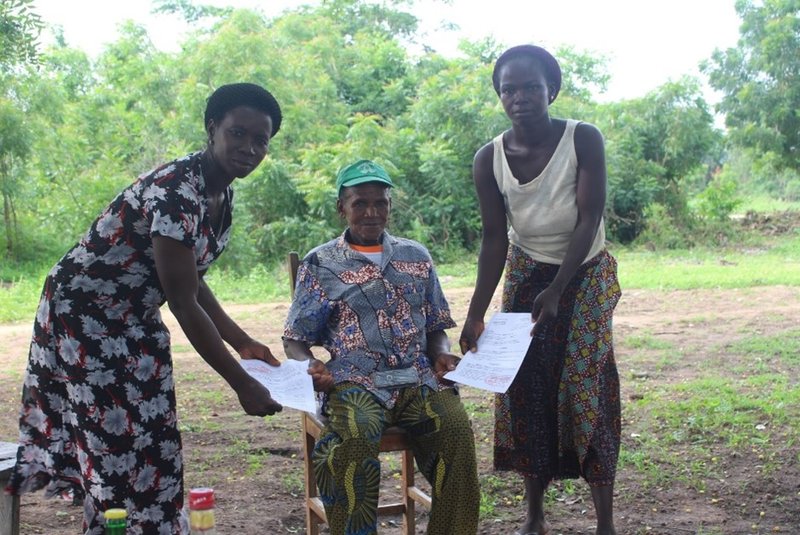In Sub-Saharan Africa, women own less than 1% of the land
By leveraging innovation, International Land Coalition’s (ILC) land governance platform piloted a program in Togo's South-Eastern Plateau region to promote and secure women's land rights. In Sub-Saharan Africa, women own less than 1% of the land, and in this particular region, their control over land is secondary and contingent on their spouses.
However, in May 2021, ILC's program made a significant impact on the lives of these women and the community as a whole. The program, implemented by Autopromotion rurale pour un Développement Humain Durable (ADHD), ILC's platform host, sensitized the community to the importance of women's land rights and the benefits of land registration in rural areas based on the 2018 land and property code. To make the program inclusive and participatory, ADHD used image boxes to translate the provisions of the code into pictures.
The use of image boxes was a creative and effective approach to overcome potential language barriers and low literacy rates in the region. The program also involved key stakeholders, including traditional and religious leaders, to sensitize them on the importance of women's land rights and gain their support.

Abdou-rachidou Matcheri displaying the image box to communities
It is encouraging to hear that traditional leaders are advocating for more men to recognize the importance of women's involvement in land matters. Women's land rights are often overlooked, and their participation in decision-making processes can lead to more equitable and sustainable land use.
The fact that two women from the Azonsougblé community, Amezoti Djigbondi and Atinou Généviève, were able to successfully register their land ownership is a significant milestone where women have historically been marginalized and excluded from land ownership, as it demonstrates the practical impact of the program. Hopefully, this success will encourage more women to assert their land rights and participate in land-related decision-making processes.

Amezoti Djigbondi and Atinou Généviève, receiving their title deeds after successfully registering their land
The program's success further demonstrates the potential for community-led initiatives to address gender inequality and promote women's rights in rural areas. It also highlights the importance of building partnerships and collaborations between government institutions, civil society organizations, and community-based organizations to effect lasting change.




